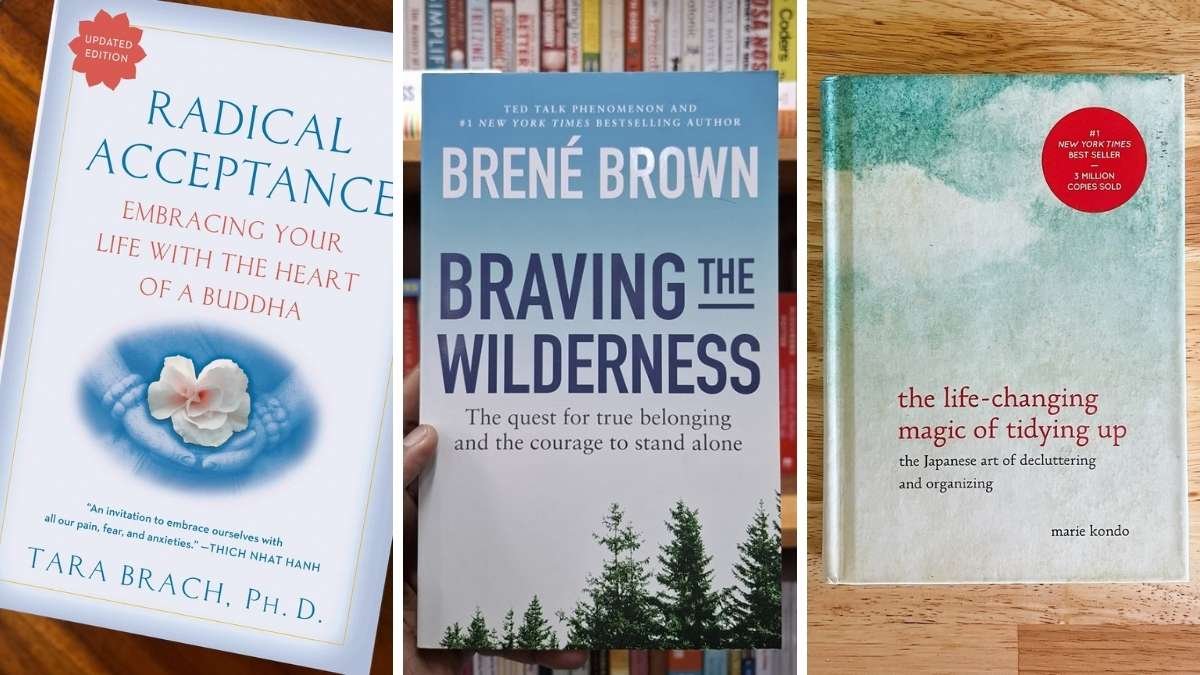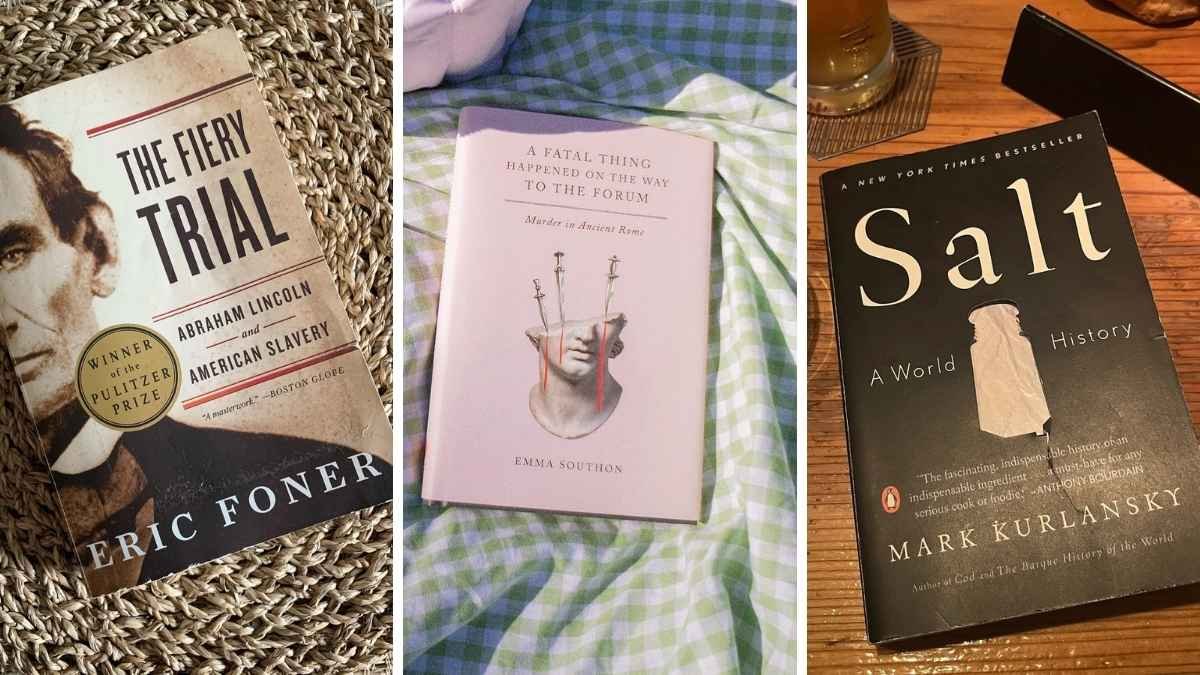
Life has a habit of throwing curveballs—stress, uncertainty, and that suffocating sense of being buried under responsibilities.
When the weight of the world feels too heavy, sometimes the best solace isn’t a grand gesture but a quiet afternoon with a book that understands.
Below, we’ve curated a collection of transformative reads that don’t just distract you from the chaos—they equip you with tools, perspectives, and courage to navigate it. These aren’t just books; they’re lifelines. Let’s dive in.
1. “When Things Fall Apart” by Pema Chödrön

Pema Chödrön has this incredible gift of speaking directly to the heart when it’s breaking. In “When Things Fall Apart,” she doesn’t sugarcoat life’s difficulties—she acknowledges them with raw honesty while offering Buddhist wisdom that’s surprisingly accessible. What makes this book so powerful is how it redefines our relationship with suffering. Instead of viewing pain as an enemy to defeat, Chödrön teaches us to lean into it, to sit with the discomfort, and discover that even in our darkest moments, there’s a wellspring of compassion and resilience waiting to be uncovered. The beauty of her approach is that it doesn’t require grand gestures or dramatic life changes—just a willingness to be present with whatever arises.
Key takeaway: “When Things Fall Apart” isn’t about fixing your life; it’s about learning to be unshakable amid life’s inevitable chaos. Chödrön’s wisdom reminds us that our greatest teacher often hides in the very storms we’re desperate to escape.
2. “The Gifts of Imperfection” by Brené Brown

If you’ve ever felt the suffocating pressure of trying to be perfect in a world that’s anything but, Brené Brown is your person. In “The Gifts of Imperfection,” she dismantles the myth of perfectionism with research-backed insights that are both enlightening and profoundly liberating. Brown argues that our vulnerabilities—the very parts we try to hide—are our greatest source of connection and power. What makes this book so impactful is how it transforms guilt and shame from paralyzing forces into stepping stones for growth. She doesn’t just tell you to embrace imperfection; she gives you practical tools to cultivate self-compassion and authenticity in a society that constantly judges.
Transformation begins when we stop apologizing for being human. Brown’s work isn’t just theoretical—it’s a rallying cry to live wholeheartedly, flaws and all.
3. “Option B: Facing Adversity, Building Resilience, and Finding Joy” by Sheryl Sandberg and Adam Grant

Sheryl Sandberg’s journey through grief after her husband’s sudden death is both devastating and deeply inspiring. What sets “Option B” apart is how it combines Sandberg’s narrative with Adam Grant’s psychological research on resilience. The book doesn’t promise easy answers—it acknowledges the raw, messy reality of suffering while offering science-backed strategies to navigate it. One of the most powerful concepts introduced is the idea of “post-traumatic growth,” where adversity, while painful, can lead to unexpected personal development. The vulnerability with which Sandberg shares her story creates an intimate connection, making the practical advice feel not just helpful but deeply compassionate.
Resilience isn’t about bouncing back; it’s about growing through. This shift in perspective transforms suffering from a dead end into a path, however difficult, toward renewed strength and purpose.
4. “The Life-Changing Magic of Tidying Up” by Marie Kondo

At first glance, a book about cleaning might seem out of place on a healing shelf. But Marie Kondo’s approach to decluttering goes far beyond organizing—it’s a mindfulness practice that helps us let go of what no longer serves us. The “KonMari” method isn’t just about folding socks neatly; it’s about examining our possessions and relationships with intention. Kondo encourages us to ask which items “spark joy,” prompting a deeper reflection on what truly matters in our lives. The physical act of tidying becomes a metaphor for mental and emotional decluttering. What’s fascinating is how this simple practice can reduce anxiety and create space—both literally and figuratively—for what truly nourishes us.
Surrounding yourself with things that spark joy isn’t just about aesthetics; it’s about curating a life that reflects your inner values. Kondo’s gentle guidance transforms cleaning from a chore into a healing ritual.
5. “The Untethered Soul” by Michael A. Singer

Michael Singer has a way of making complex spiritual concepts feel surprisingly grounded. In “The Untethered Soul,” he invites us to observe our thoughts and emotions without attachment—a practice that creates space between stimulus and response. The book’s power lies in its simplicity: by learning to witness our internal dramas rather than becoming entangled in them, we discover an inner stillness that remains undisturbed by life’s chaos. Singer doesn’t ask you to suppress feelings or achieve some enlightened state; he simply encourages awareness. The result is a growing sense of freedom as you realize you’re not your thoughts—you’re the observer of them.
True freedom comes not from controlling your mind, but from stepping back and watching it unfold. The singer’s approach makes spiritual growth feel accessible, even for those skeptical of traditional mindfulness practices.
6. “Braving the Wilderness” by Brené Brown

Brené Brown returns to our healing bookshelf with another powerful offering in “Braving the Wilderness.” This time, she explores the increasingly relevant topic of belonging and the loneliness that arises when we feel disconnected from others. Brown argues that true belonging doesn’t come from fitting in, but from being willing to stand alone and be seen for who we truly are. In a world growing more polarized by the day, her insights on empathy, vulnerability, and the courage to maintain your authenticity even when it’s uncomfortable are nothing short of revolutionary.
Belonging starts with self-acceptance. Brown’s work reminds us that the deepest form of connection comes not from seeking approval, but from embracing our unique identities and sharing them with the world.
7. “The Body Keeps the Score” by Bessel van der Kolk

For those whose overwhelm stems from past trauma, “The Body Keeps the Score” is an essential read. Dr. Bessel van der Kolk combines cutting-edge research with compassionate storytelling to explain how trauma fundamentally alters our relationship with our bodies and minds. What makes this book so valuable is its practical focus on healing. Van der Kolk introduces various therapeutic approaches—from yoga and mindfulness to art therapy—that help trauma survivors reconnect with themselves and regain a sense of safety in their skin. The book’s strength lies in its ability to make complex neuroscience accessible while honoring the deeply personal nature of healing.
Trauma doesn’t just live in our minds; it lives in our bodies. Van der Kolk’s work bridges the gap between scientific understanding and personal healing, offering hope to those who have felt trapped by their past.
8. “Radical Acceptance” by Tara Brach

Tara Brach’s “Radical Acceptance” brings together Buddhist wisdom and Western psychology to address the suffering that comes from resisting what is. Brach guides readers through practices designed to help us stop fighting reality and instead meet our current circumstances with compassion and clarity. The book’s power lies in its gentle insistence that acceptance isn’t about passivity—it’s about creating space to respond skillfully rather than react destructively. Brach’s willingness to share her struggles makes her guidance feel trustworthy and attainable.
Pain is inevitable, but suffering is optional. Brach’s teachings offer a pathway to freedom from the inner battles that often make life’s challenges feel even more overwhelming than they already are.







